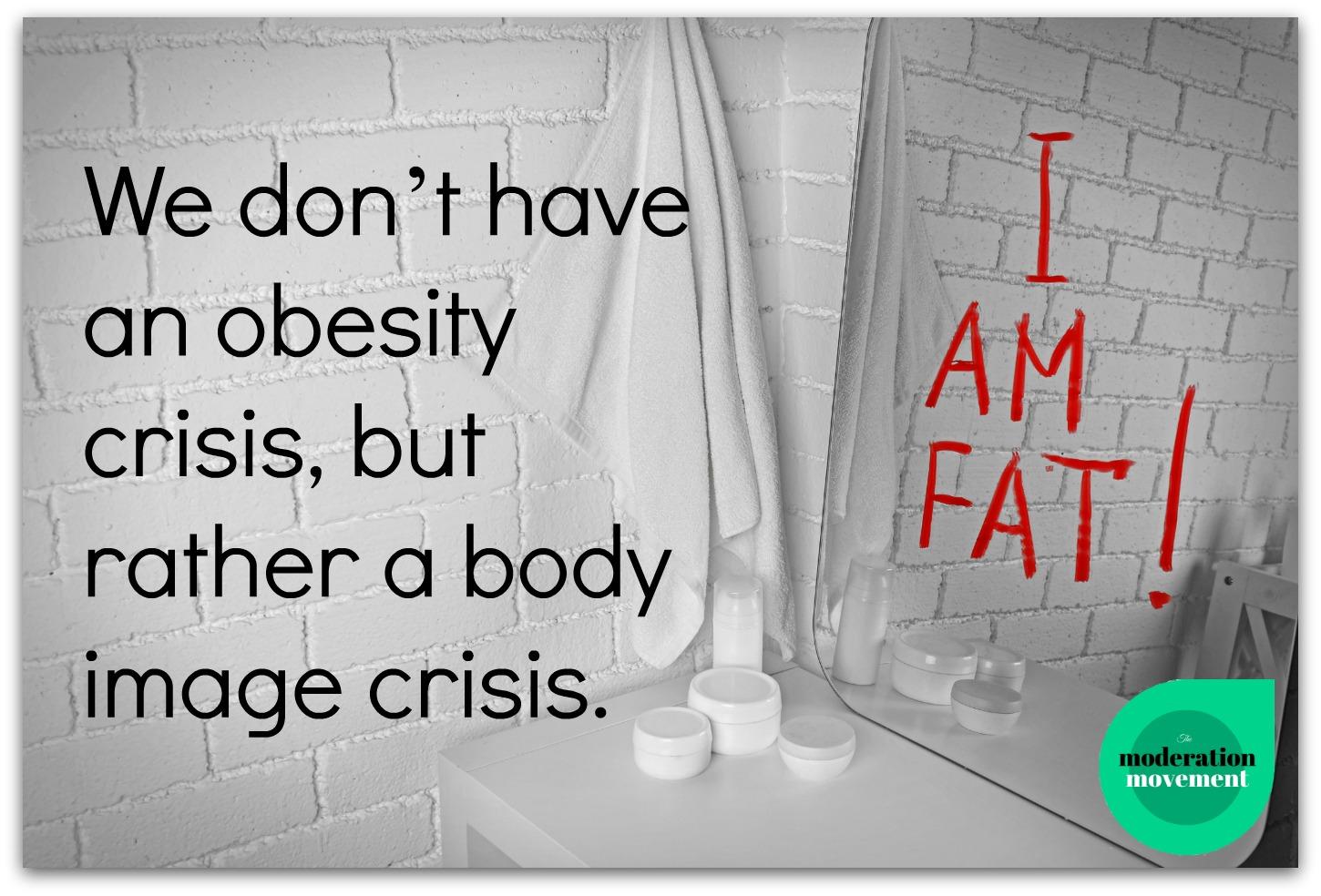We don’t have an obesity crisis, but rather a body image crisis.

Yes there are people with high BMIs whose weight has an impact on their health, but there are also people with high BMIs who are perfectly healthy from a metabolic and physical standpoint.
We must also acknowledge there are people with low BMIs who are unhealthy and that the risk of premature death is actually greater* for people in the underweight BMI category compared with people in the “overweight” or “obese” BMI ranges.
Amongst the millions of metabolically healthy people with BMIs above 25, there are many people for whom mental and emotional health is damaged by our culture’s weight stigma and obsession with thinness. Through the process of trying to lose weight, because that’s what our culture says is necessary for health and acceptance, these otherwise healthy people develop disordered eating behaviours, preoccupation with food, psychological damage and poor body image. Some develop eating disorders which seriously erode a person’s physical and mental health. In all of these instances, the pursuit of weight loss actually worsens health.
I am not saying all people with high BMIs are perfectly healthy and that they should not worry about their health, the decision to take care of the health of our body should be independent of our size. This is precisely what the HAES (Heath At Every Size) movement is advocating.
In my practice, one of the biggest road blocks for many people in terms of managing their eating and health, is body image. How we feel about our bodies is tied up in how we feel about ourselves.
There are many reasons people feel unhappy in themselves, such as issues with work, relationships, financial situation etc. It’s not unusual for people to feel they have no or little control over these factors, while there is a perception that we can control or change our bodies. This leads many people to focus on the one thing they are led to believe they can control, their body size and shape, as a goal to feel better in themselves. Unfortunately we have much less control over our body shape and size than we are led to believe.
Added to this is our culture’s weight stigma and weight bias where thin is seen as “good” and fat is seen as “bad”. This adds up to a strong message that we must lose weight or be thinner to be happy, healthy and acceptable. This message continues to fuel our diet culture and keep people in the trap of dieting.
Dieting has now been shown to be a strong predictor of weight gain**. Let’s agree for a moment that we do have an obesity crisis, if the advice is lose weight and this leads to dieting (which it inevitably does), and dieting increases the risk of weight gain, mental health issues and eating disorders, then focusing on obesity as the issue is a fast track to nowhere and ill-health. There is another way.
Instead of focusing on obesity as a health issue, I would like to see more dietitians and other health professionals addressing body image and the drivers behind why so many people are so deeply unhappy with their bodies. This would require shifting our cultures strong beliefs around weight and changing the messages fed to us daily by various industries around what it means to be an acceptable human. As per Dr Brene Brown’s work, we must also acknowledge our human vulnerability that leaves us feeling we are never enough or never have enough – no small feat but one that is being addressed by HAES practitioners and various other people and organisations across the world.
*www.medicaldaily.com/being-severely-obese-healthier-being-underweight-241247
**www.intuitiveeating.com/content/warning-dieting-increases-your-risk-gaining-more-weight-update
